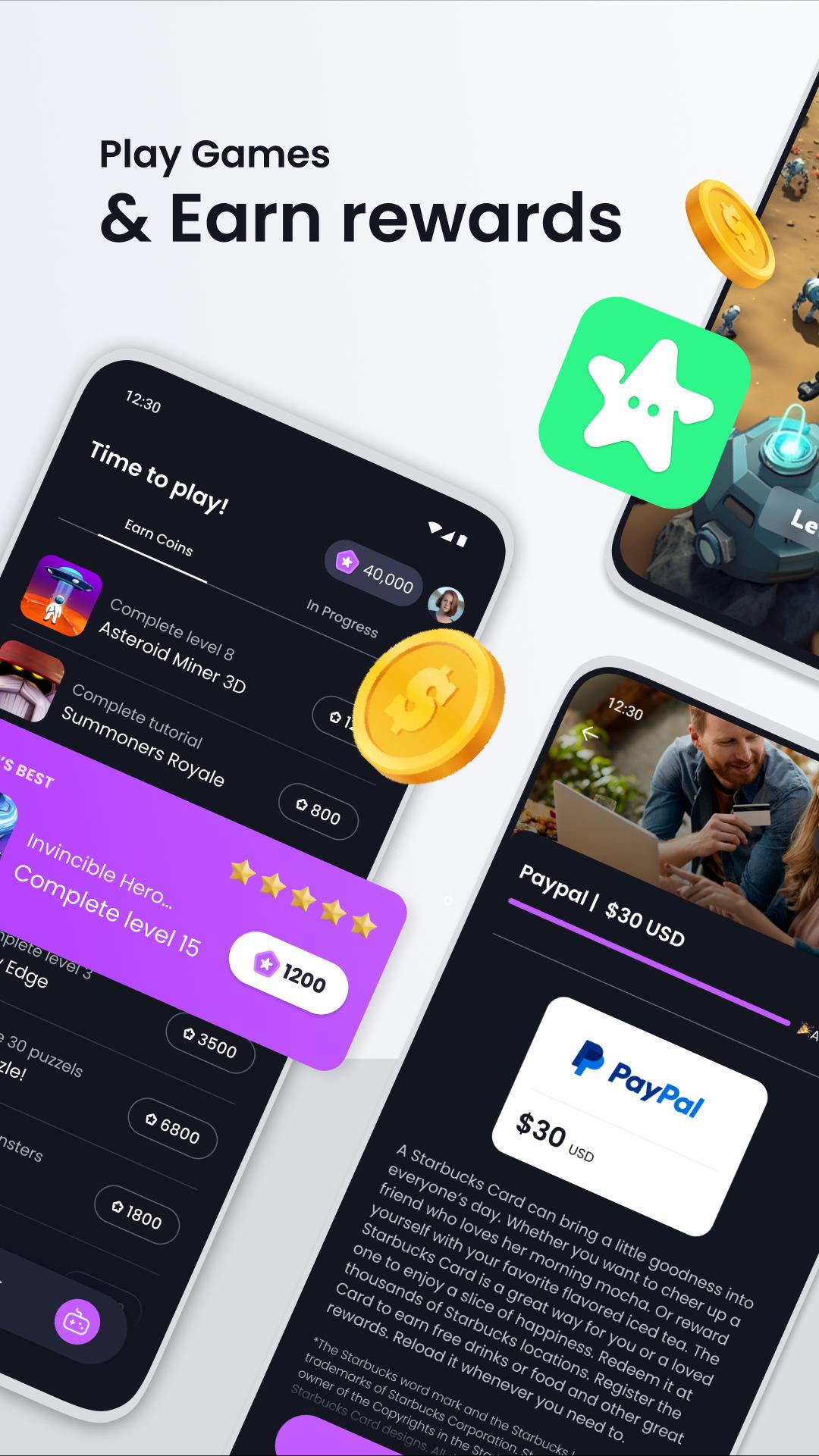How to play to earn rewards and boost your earnings with every play session
How to play to earn rewards and boost your earnings with every play session
Blog Article
Why Play-to-Earn Benefits Are Changing the Way You Play and Gain
The development of play-to-earn models signifies a noteworthy shift in the pc gaming landscape, welcoming gamers to discover not only the entertainment worth of games however likewise their potential as income-generating platforms. Comprehending these dynamics raises important questions about the future of pc gaming and the effects for both gamers and developers alike.
Introduction of Play-to-Earn Models
Recently, the pc gaming industry has witnessed a significant makeover with the development of play-to-earn versions, fundamentally modifying just how players involve with digital environments. This ingenious technique enables players to get tangible benefits with their in-game activities, developing a change from traditional pc gaming standards where pleasure and competition were the key motivations.
Play-to-earn designs utilize blockchain technology and non-fungible tokens (NFTs) to provide players with possession of in-game assets, which can be traded or cost real-world money. As an outcome, gamers are incentivized to spend time and initiative into games, cultivating a feeling of company and financial opportunity. play to earn rewards. This change has attracted a diverse gamer base, including those that may have formerly seen gaming as a simply recreational task
Several systems have actually arised, showcasing successful implementations of this version, such as Axie Infinity and Decentraland. These platforms have not only generated considerable income yet also triggered discussions around the sustainability and principles of such financial systems. As play-to-earn models remain to progress, they assure to redefine the partnership in between players, programmers, and the broader digital economic climate, leading the way for a brand-new era in video gaming.
Advantages for Gamers
As gamers involve with play-to-earn designs, they unlock a variety of benefits that extend beyond mere entertainment. Unlike conventional video gaming, where gamers spend time and cash without concrete returns, play-to-earn systems allow players to earn copyright or in-game possessions that can be transformed to real-world worth.
Additionally, play-to-earn versions promote community building among players. Players typically collaborate to achieve common objectives, therefore growing social links that enhance the overall experience. This feeling of area can result in cooperative gameplay, where players share methods and resources, improving both individual and group achievements.
In addition, these designs can equalize accessibility to gaming by enabling gamers from diverse financial histories to profit financially. By joining play-to-earn ecological communities, people can gain skills and knowledge concerning blockchain modern technology, further widening their profession possibilities in the blossoming electronic economic climate. Eventually, the benefits for players prolong well past gameplay, affecting their social, economic, and educational landscapes favorably.
Difficulties in the Environment
While the play-to-earn ecological community presents significant opportunities, it is not without its obstacles. One major concern is the volatility of in-game currencies and assets, which can cause uncertain earnings for gamers. Fluctuations in value can prevent read review potential gamers that look for stable earnings streams - play to earn rewards. Additionally, the complexities of blockchain technology may perplex customers unfamiliar with electronic currencies, developing barriers to access.
One more difficulty is the danger of scams and deceptive systems that can afflict the environment. Gamers may run into deceptive platforms assuring high incentives however inevitably bring about economic loss. Ensuring count on and safety and security is vital for the lasting feasibility of play-to-earn models.
Moreover, the ecological influence of blockchain video gaming can not be ignored. The power usage linked with mining and transaction handling elevates ethical questions concerning sustainability. Game programmers need to find an equilibrium in between gratifying gamers and reducing ecological footprints.
Finally, the regulatory landscape is still progressing, positioning prospective threats for designers and gamers alike. Uncertain legal structures can impede advancement and restrict the development of play-to-earn communities. Attending to these challenges is essential for recognizing the full capacity of this transformative video gaming standard.
The Function of Blockchain Innovation
Blockchain technology functions as the foundation of the play-to-earn community, attending to a number of the difficulties formerly laid out. By making use of decentralized journals, blockchain makes certain openness and protection in transactions. Gamers can confidently gain and trade in-game assets, knowing that possession is verifiable and not subject to control.

Tokenization of properties plays a crucial duty, providing gamers true possession of their in-game items, which can be purchased, offered, or traded on numerous industries. This motivates a vivid secondary market, where players can monetize their skills and time bought recommended you read the video game.
Additionally, blockchain innovation makes it possible for interoperability between different video games and platforms, allowing players to carry their possessions throughout various environments. This flexibility not only improves user experience however additionally promotes a more inclusive pc gaming atmosphere, eventually improving the landscape of video gaming and earning.
Future Patterns in Gaming
The gaming industry gets on the edge of a transformative development, driven by emerging modern technologies and moving player expectations. As play-to-earn versions gain grip, players are significantly seeking immersive experiences that blend entertainment with substantial incentives. This change is motivating developers to innovate, concentrating on developing interesting gameplay that fosters area and interaction.
One remarkable pattern is the assimilation of online fact check it out (VIRTUAL REALITY) and increased fact (AR), improving the video gaming experience by offering much deeper immersion and interactive atmospheres. In addition, improvements in synthetic knowledge are allowing extra sophisticated non-player personalities (NPCs) and flexible gameplay, customizing experiences to specific player choices.

Final Thought
In final thought, the play-to-earn design is substantially transforming the video gaming landscape by enabling gamers to obtain real-world worth from their in-game tasks. This paradigm shift not only enhances player involvement and financial investment however additionally raises obstacles that must be addressed to make sure sustainability within the community. As blockchain innovation proceeds to assist in ownership of electronic assets, the future of video gaming promises additional innovation and possibilities for players across varied histories.
Report this page